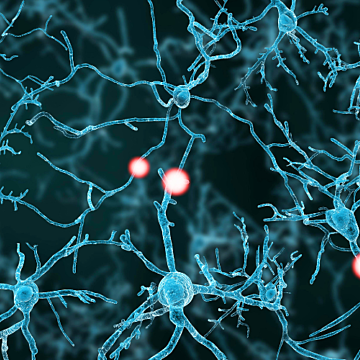Research Project

Tertia Purves-Tyson
Current Appointments
Senior Research ScientistKey Research Areas
Current research focuses on the molecular/mechanistic understanding of how sex steroid signaling and neuroinflammation interact and contribute to striatal and cortical modulation of dopamine and how dopamine-related behaviours (psychotic-like symptoms, memory and cognition) are altered by sex steroids in male and female rats of different ages. The goal is to transfer this knowledge to human studies to develop or enhance sex steroid based and immune-related treatments for the cognitive and psychotic symptoms of schizophrenia in an age and gender-specific manner.
Dr Purves-Tyson completed a PhD at Manchester University, UK, implicating the mitogen-activated protein kinases in the aetiology of diabetic sensory neuropathy. She relocated to Australia in 2002 to investigate sex steroid signalling mechanisms in pelvic autonomic and sensory neurons. She was awarded an NHMRC Biomedical Training Fellowship and a Ramaciotti Foundation Establishment gift in 2004 to examine the effects of oestrogen on signalling mechanisms on the pelvic autonomic nervous system in diabetes.
Publications
2023
GRIN2B gene expression is increased in the anterior cingulate cortex in major depression
View full journal-article on http://www.scopus.com/inward/record.url?eid=2-s2.0-85148770723&partnerID=MN8TOARS
2022 Nov
The Role of the Microbiome in the Metabolic Health of People with Schizophrenia and Related Psychoses: Cross-Sectional and Pre-Post Lifestyle Intervention Analyses
View full journal-article on https://www.mdpi.com/2076-0817/11/11/1279
2022
Alterations in the kynurenine pathway and excitatory amino acid transporter-2 in depression with and without psychosis: Evidence of a potential astrocyte pathology
View full journal-article on http://www.scopus.com/inward/record.url?eid=2-s2.0-85122915475&partnerID=MN8TOARS
2022
Increased levels of a pro-inflammatory IgG receptor in the midbrain of people with schizophrenia
View full journal-article on http://www.scopus.com/inward/record.url?eid=2-s2.0-85134269042&partnerID=MN8TOARS
2022
Inflammation-related transcripts define “high” and “low” subgroups of individuals with schizophrenia and bipolar disorder in the midbrain
View full journal-article on http://www.scopus.com/inward/record.url?eid=2-s2.0-85134309867&partnerID=MN8TOARS
2022
Maternal immune activation with high molecular weight poly(I:C) in Wistar rats leads to elevated immune cell chemoattractants
View full journal-article on http://www.scopus.com/inward/record.url?eid=2-s2.0-85123621360&partnerID=MN8TOARS
2022
N-Methyl-D-Aspartate receptor and inflammation in dorsolateral prefrontal cortex in schizophrenia
View full journal-article on http://www.scopus.com/inward/record.url?eid=2-s2.0-85121423017&partnerID=MN8TOARS
2021 Dec
Reductions in midbrain GABAergic and dopamine neuron markers are linked in schizophrenia
View full journal-article on https://doi.org/10.1186/s13041-021-00805-7
2021, 05 Mar
Increased levels of midbrain immune-related transcripts in schizophrenia and in murine offspring after maternal immune activation
View full journal-article on https://doi.org/10.1038/s41380-019-0434-0
2021
Cortisol-dehydroepiandrosterone ratios are inversely associated with hippocampal and prefrontal brain volume in schizophrenia
View full journal-article on http://www.scopus.com/inward/record.url?eid=2-s2.0-85093982339&partnerID=MN8TOARS



